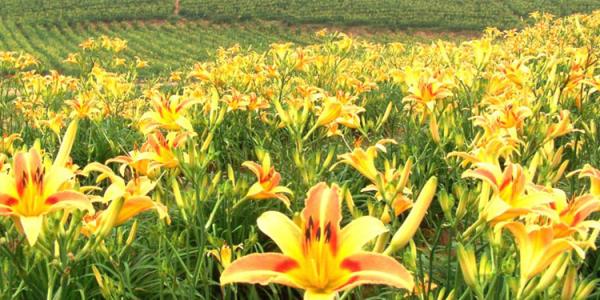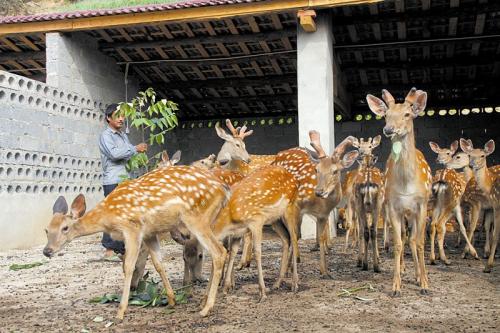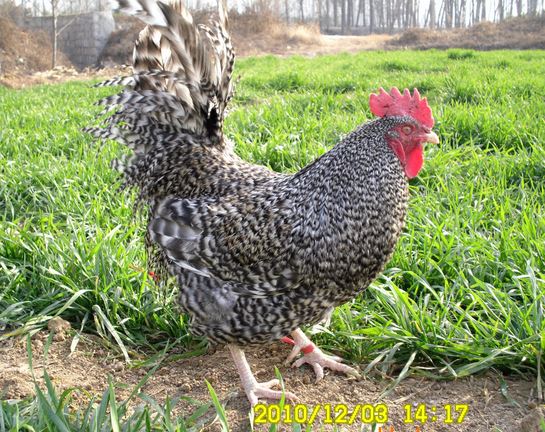How to grow cauliflower in detail, how much money can be earned by analyzing the benefit of growing cauliflower?
Cauliflower, also known as golden needles, is an herb, with hemostatic, anti-inflammatory, heat-clearing and other effects, in the market sales are very good, and easy to grow, so many growers cultivate, so how is it planted? The point is, is cauliflower really profitable? What are the specific benefits? Next, let's get to know it.
Planting method of cauliflower:
1. Land selection: cauliflower is not strict to the soil, resistant to barren, strong adaptability, whether clay loam or sandy loam can grow well, no matter hillside, flat land can be planted.
2. Fertilization: when planting, first open the hole with 15-20cm deep and wide 20~30cm, apply 50kg and compound fertilizer 1kg of human rotten pig and cow manure every 40 holes, and mix the base fertilizer and cave soil well after application.
3. Timely transplanting and reasonable close planting: from the end of flower bud harvest to next year's spring seedling, it is best to transplant separately after flower bud harvest, winter seedlings can occur in the same year, new roots can be produced, nutrients can be accumulated, and bolting can be put into production the next year.
4. Harvest: the most suitable time for harvest is bud bud, that is, when the bud is full and not open, the middle color is golden, both ends are green, the top mouth is black, and the tip mouth seems to be open.

Benefit analysis of cauliflower:
Cauliflower is a kind of cash crop with strong vitality and long-term benefits. after it is planted successfully, it will have a harvest in the same year.
"the income of one mu of cauliflower is equal to that of the past 10 mu of cornfield," the lily grower said. To this end, low-income households are also very enthusiastic about planting. The exact amount of money earned depends on the individual.
Picking and processing technology of cauliflower the processing technology of cauliflower includes material selection, steaming, drying, inspection and packaging, etc. 1. Picking cauliflower should be picked in time every day, those that mature early should be picked first, and those that mature late should be picked later. Too early harvest, the bud is not fully expanded, the yield is low; too late harvest buds split mouth or opening will also affect the yield and quality. Mature cauliflower buds are yellowish green and full, with obvious vertical grooves on the petals and budding. 2. Processing technology of cauliflower 2.1 fresh cauliflower with plump, firm petals, fully developed buds, elastic and yellow should be selected as raw materials. The buds picked 1-2 hours before the split mouth had high yield and good quality. 2.2 steaming of cauliflower is a key process to determine the quality of cauliflower. The collected buds should be sent to the cauliflower steamer in time to be steamed, and the blooming buds should be removed before steaming, the layer should be fluffy, the thickness should be 6~lOcm, too thick familiar with uneven, too thin fuel waste. A small hole should be left in the middle to facilitate the rise of steam. Pour the water into the iron pot before steaming, and the amount of water in the pot should be about lOcm from the bottom of the house, then make a fire to boil the water, and at the same time quickly put the sieve with flower buds into the steamer. Steaming time depends on firepower, generally steaming 8min. The standard of steaming maturity is generally 5 degrees of maturity, that is, the color changes from yellow to green, the flower stalk begins to soften, and the hands rub the buds with a slight wobble. Usually when the steam comes out of the cupboard. 2.3 the buds of cauliflower after drying and steaming are spread out thinly on the sun curtain, which is placed on the flower rack to make it overhead to facilitate the distribution of water around. After half a day in the sun, if the color of the bud turns white, it means it is well steamed. It usually needs 2.5 days in the sun. It should be turned frequently in the sun, and the empty curtain of the same size can be turned over once, so that the buds are dry and consistent. Protect yourself from rain in the sun. If you use cement to bask in the field or hillside rocks to bask in flowers, often because the temperature is too high, the color of the product is not better than the overhead sun.
There are two ways to dry by baking. Small direct warm water baking method. Put the baking cage on the firewood stove or coal stove and burn charcoal or coal below for baking. In this method, the fire temperature is higher at the beginning of baking, so that the moisture in the buds evaporates quickly. When the buds are baked to 6 or 70% dry, the firepower must be reduced. The baking time is about 6 ~ 8 hours. The rate of finished products is low and the quality is poor. Indirect fire drying. This method is carried out in the drying room, the steamed buds are kept evenly for 50-70 ℃, baked to semi-dry, then spread out to dry, and then baked on the 2nd day. Due to one drying, cyan stiff strips will occur, which will affect the quality. Usually bake to 7 or 8% dry, at this time the storage will not be moldy, choose sunny weather and then dry. Indirect fire drying can not only save fuel, but also maintain good color. 2.4 cauliflower tested that those who are golden and strong are high-grade, those who are yellow with brown and those with uneven thickness are middle-grade, and those with dark yellow strips with uneven shrinkage are inferior. When you squeeze cauliflower vigorously, you feel soft and hard, and those that are loose soon after release indicate moderate dryness, while those that do not spread out indicate too much water content. The quality with clear fragrance is better. 2.5 packing classification should be packed in double-thread gunny bags or plastic film food bags, which should be packed solid to prevent damp insects from eating. Quality requirements: first-grade products should be dry, golden yellow, uniform thickness, aroma, no moth, no mildew, no stalk and impurities, no more than 2% of green striped flowering vegetables. Second-grade products need to be dry, yellow, uniform thickness, good flavor, no moth, no mildew, no stalk and impurities, flowering no more than 6%. Third-grade products need to be dry, yellow with dark brown, uneven thickness, no peculiar smell, no moth, no mildew, no impurities, flowering cauliflower no more than 12%.
If large-scale mountain forest development is carried out to replace cauliflower land in the planting area, it will also be restricted by many factors:
1. Manpower
At present, the production areas mainly rely on the accumulation of a little, each household is more than 1 ton, two middle-aged couples can take care of, the young people in the village are out, and people have to be hired from other places. Cauliflower is done in hot weather, which is more tiring than the work of house porters. It is difficult to find hard-working, efficient and low-paid people.
2. Competition
If the cauliflower planted in pieces is processed in the same way as ordinary villagers, it will form a direct competition.
The output of farmers is constant, and the input is also fixed. There are many factors to consider when planting on a large scale. Experience is needed, including management.
3. Quality control
Group management, the production of cauliflower certainly needs the advantage of quality, it needs to be put into production and processing equipment. This is also a large initial investment.
4. Sales channels
The sales of farmers are purchased door-to-door through village and town purchasers. Collectivization management needs to find the right market. Including the processing and transportation channels of cauliflower, which has no good experience to learn from in rural areas.
Generally speaking, cauliflower production areas need to be open-minded, vigorously introduce domestic and foreign production and processing experience, in order to enhance the potential value of cauliflower and expand ideas. It is not to turn the producing areas into special areas of the country, but to make China the main producing area of cauliflower in the world.
Time: 2019-05-05 Click:
- Prev

Is it easy to raise sika deer? How is the sika deer introduced? what are the specific conditions for breeding?
Sika deer farming has now become a new industry, but many people still dare not try, for fear that sika deer is not easy to raise. Do not know how to introduce sika deer? Let alone what conditions do you need to raise sika deer? For this reason, the editor will sort out these related questions for you. Is it easy to raise sika deer?
- Next

Analysis on the breeding benefit Prospect of Luhua Chicken Seedling
The body of Luhua chicken is oval and large, and the weight of adult chicken is only four to five jin at most. Its eggshell is mostly light brown, but whether it is chicken or egg, it is much more nutritious than ordinary broilers, and the meat quality of chicken is more delicious and refreshing. Luhua chicken is also a native chicken breed in China, so it is more suitable for free breeding in rural areas.
Related
- Fuxing push coffee new agricultural production and marketing class: lack of small-scale processing plants
- Jujube rice field leisure farm deep ploughing Yilan for five years to create a space for organic food and play
- Nongyu Farm-A trial of organic papaya for brave women with advanced technology
- Four points for attention in the prevention and control of diseases and insect pests of edible fungi
- How to add nutrient solution to Edible Fungi
- Is there any good way to control edible fungus mites?
- Open Inoculation Technology of Edible Fungi
- Is there any clever way to use fertilizer for edible fungus in winter?
- What agents are used to kill the pathogens of edible fungi in the mushroom shed?
- Rapid drying of Edible Fungi

